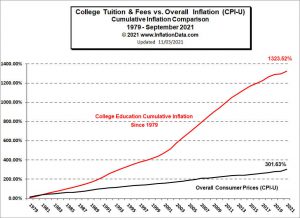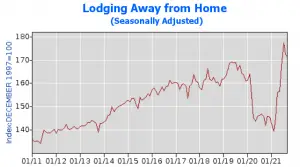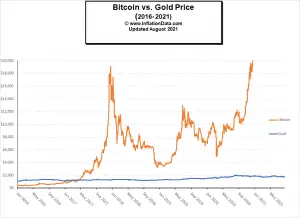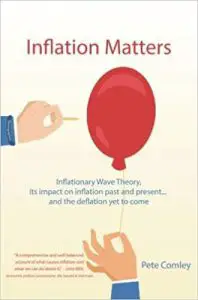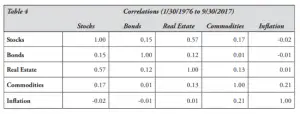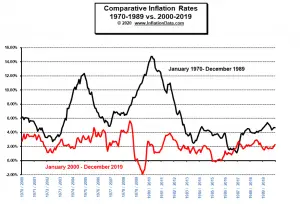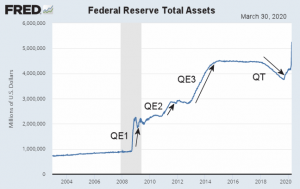While the pandemic began to alter the way we live in 2020, its ripple effect on the economy has continued the devastation. Initially, people were not spending as much as they would have if they didn’t have to remain at home. Once the government relaxed the restrictions in November 2020, people began traveling and satisfying their pent-up demand. This surge in spending overwhelmed the limited supply, which caused short-term inflation (when demand exceeds supply, prices go up). Several other factors have affected inflation since then, and households have been reeling due to the hikes in the prices of everyday items. However, hardly anyone talks about the effect of inflation on American … [Read more...]
The Travel Industry, the Pandemic and U.S. Inflation
Inflation has been apparent in the United States, making many people worry about financial stability in the nation. With the COVID-19 pandemic, there have been rising prices, labor shortages, and people wary about spending. In this overview, we’ll explore how the U.S. inflation brought on by the pandemic has contributed to changing the financial and business landscape of the travel industry. At First Glance “The pandemic not only caused the shutdown of many companies and organizations but had also discouraged consumers from traveling to abide by social distancing mandates,” says Kendra Banks, a business writer at Uktopwriters. Rising airfares, price hikes on used vehicles, and people … [Read more...]
Safe-Haven Investments that Protect Your Capital From Rising Inflation
How the Pandemic Created Inflation Given the current state of affairs and how the Covid-19 pandemic has impacted the global economic outlook, an unconventional recession has emerged, prompting many governments to inflate the money supply to counteract the artificially suppressed economic activity. In many countries, this inflated money supply has resulted in consumer price inflation and resulted in investors seeking a safe haven investment. When there's a high level of inflation, economic uncertainty, or financial markets are in turmoil investors flock to safe-haven assets. The rationale is that in times of crisis when most traditional investments are losing value, safe-haven assets tend … [Read more...]
9 Inflation Books You Must Read
For the average person, deflation, inflation, and even hyperinflation may seem quite murky or mysterious. However, it's actually a lot easier than you'd think. With the right books, the idea of inflation can be broken down for you, and you can start to understand how monetary inflation works. You might also like: How the FED Controls the Money Supply Money Multiplier Velocity of Money Agflation- What is it? Inflation and Velocity of Money What is the Real Definition of Inflation? Here are 9 books that you have to check out if you want to understand more about inflation. 1) Inflation Matters by Pete Comley Inflation Matters is a truly comprehensive book … [Read more...]
5 Ways Inflation Affects the Accounting Industry
Market fluctuations are an everyday element of the accountant’s life. They come and go, subject to the economics, markets, and policies of countries and governments. As an economy enters a period of inflation and sees the cost of everyday products rise, the impact can be felt not only by the individual consumer but also on the business balance sheet. That’s when the accounting industry comes into its own, offering experience and insight into a company’s reporting. Here are 5 ways inflation affects the accounting industry, and how that impacts business. 1. Preparation for Change Becomes a Priority Throughout history, periods of inflation and conversely deflation, have made their presence … [Read more...]
A Stock Pickers Guide To Thinking About Inflation
Stock investors sitting on cash and watching the stock market soar to new highs shouldn’t be faulted for missing out on above-average historical returns in 2020. Inflation, along with increasing signs of a market bubble, is a growing area of concern so the prospect of investing in tech giants valued at more than $1 trillion isn’t as appealing as it once was. But investors know that sitting on a portfolio near 100% in cash will see their net worth suffer as a result of inflation. To protect against inflation, investors should consider some of the most popular stocks as of April 2021 as some of them double as a hedge against inflation. Commodity Stocks Offer A Hedge… And A … [Read more...]
How Inflation Can Effect Rising Prices
In the field of economics, many experts agree that the long-term effects of inflation are dependent on the money supply in a country. Alternatively, the price levels are directly proportional to the money supply in the long run. Therefore, the money supply or the currency in circulation can directly affect the prices of goods and services. The confusion arises because both monetary inflation (an increase in the money supply) and price inflation (an increase in consumer prices) are both commonly referred to as "inflation". Even though many people consider money printing to be the cause of more money in circulation, physical paper in circulation is actually only a small percentage of the … [Read more...]
Emerging Technologies
The world today is driven by emerging technology and innovation. These technologies not only make our lives easier but also have resulted in a competitive business market. The adoption of emerging technologies and innovation in institutions has also strengthened management and governance across all business levels. However, with the numerous emerging technologies, you might be wondering which might be the best to explore. Below are some of the top emerging technologies that show growth opportunities. Internet of Things (IoT) IoT provides a network of embedded physical objects for people to connect and exchange data with other systems. This fuels efficiency in performance by lowering … [Read more...]
A Guide for Business Owners: How to Prepare Your Organization for Inflation
COVID-19 has brought the global economy to its knees and in response, the governments of the world have opened the money printing spigots. The U.S. FED for instance has bought roughly 3 TRILLION in assets this year (labeled "Quantitative Easing 4" on this chart). Many fear that this much "money printing" will result in massive inflation or even hyperinflation. As you can see from the chart below, high inflation rates were the bane of the 1970s and early 1980s when the inflation rate rarely dipped below 4%. By contrast, the period beginning with the new millennium has rarely seen inflation go above 4%. Inflation in the 1970s caused much suffering and business disruption, … [Read more...]
Inflation Expectations and the Massive Fed Stimulus
Inflation is loosely described as a general economic state of rising prices. In February 2020, the US inflation rate dipped from a high of 2.5% in January, to 2.3%. Assuming the standard of steadily increasing prices, driven largely by food, fuel, and living expenses, one can expect the inflation rate to tick higher. Forecasts for April 2020 are at 1.7%. Given that the major drivers of inflation are excess demand (demand-pull inflation), or cost-push inflation, current conditions based on Coronavirus quarantines have created a murky demand climate. Oil Prices and Inflationary Expectations All major US indices, including the Dow Jones Index, have plunged precipitously. Stock portfolios … [Read more...]

